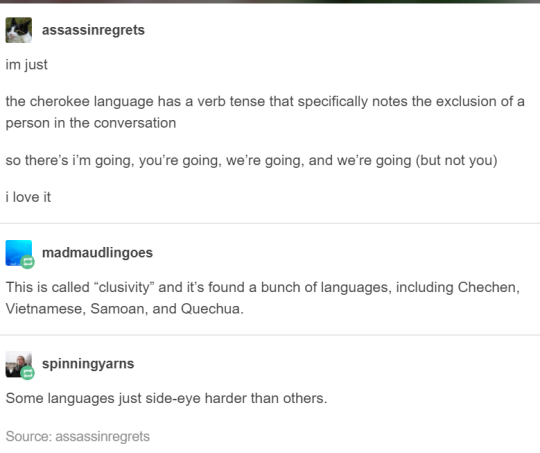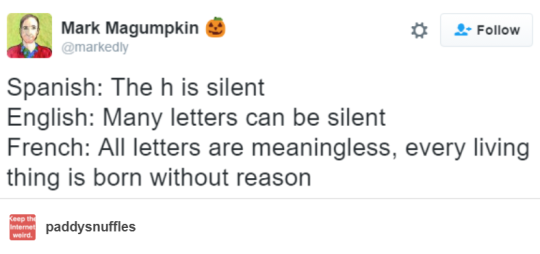reviving this space for conlangs and shit like that. This blogger is an adult and an older millenial. May occationally post mature content under a readmore. bad at tagging.
Don't wanna be here? Send us removal request.
Text
i love it when italians argue about italian. like we don’t even know how our language really works we just roll with it
188K notes
·
View notes
Text
What is a ‘wug’?
If you’ve been to linguist tumblr (lingblr), you might have stumbled upon this picture of a funny little bird or read the word ‘wug’ somewhere. But what exactly is a ‘wug’ and where does this come from?
The ‘wug’ is an imaginary creature designed for the so-called ‘wug test’ by Jean Berko Gleason. Here’s an illustration from her test:
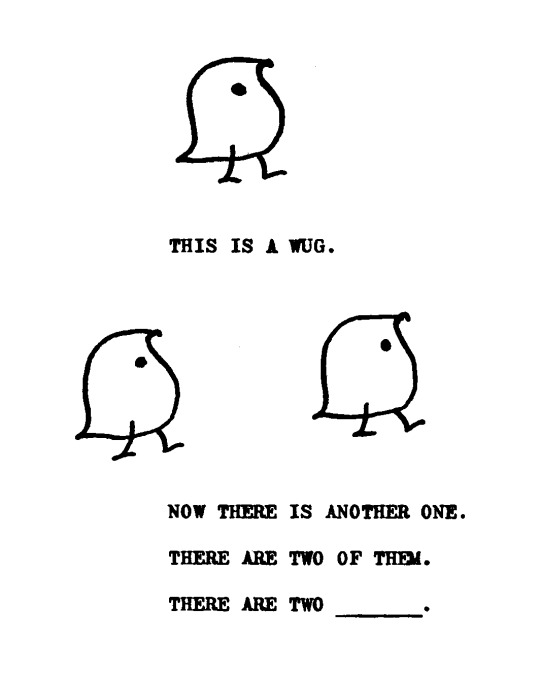
“Gleason devised the Wug Test as part of her earliest research (1958), which used nonsense words to gauge children’s acquisition of morphological rules—for example, the “default” rule that most English plurals are formed by adding an /s/, /z/ or /ɨz/ sound depending on the final consonant, e.g., hat–hats, eye–eyes, witch–witches. A child is shown simple pictures of a fanciful creature or activity, with a nonsense name, and prompted to complete a statement about it:
This is a WUG. Now there is another one. There are two of them. There are two ________.
Each “target” word was a made-up (but plausible-sounding) pseudoword, so that the child cannot have heard it before. A child who knows that the plural of witch is witches may have heard and memorized that pair, but a child responding that the plural of wug (which the child presumably has never heard) is wugs (/wʌgz/, using the /z/ allomorph since “wug” ends in a voiced consonant) has apparently inferred (perhaps unconsciously) the basic rule for forming plurals.
The Wug Test also includes questions involving verb conjugations, possessives, and other common derivational morphemes such as the agentive -er (e.g. “A man who ‘zibs’ is a ________?”), and requested explanations of common compound words e.g. “Why is a birthday called a birthday?“ Other items included:
This is a dog with QUIRKS on him. He is all covered in QUIRKS. What kind of a dog is he? He is a ________ dog.
This is a man who knows how to SPOW. He is SPOWING. He did the same thing yesterday. What did he do yesterday? Yesterday he ________.
(The expected answers were QUIRKY and SPOWED.)
Gleason’s major finding was that even very young children are able to connect suitable endings—to produce plurals, past tenses, possessives, and other forms—to nonsense words they have never heard before, implying that they have internalized systematic aspects of the linguistic system which no one has necessarily tried to teach them. However, she also identified an earlier stage at which children can produce such forms for real words, but not yet for nonsense words—implying that children start by memorizing singular–plural pairs they hear spoken by others, then eventually extract rules and patterns from these examples which they apply to novel words.
The Wug Test was the first experimental proof that young children have extracted generalizable rules from the language around them, rather than simply memorizing words that they have heard, and it was almost immediately adapted for children speaking languages other than English, to bilingual children, and to children (and adults) with various impairments or from a variety of cultural backgrounds. Its conclusions are viewed as essential to the understanding of when and how children reach major language milestones, and its variations and progeny remain in use worldwide for studies on language acquisition. It is “almost universal” for textbooks in psycholinguistics and language acquisition to include assignments calling for the student to carry out a practical variation of the Wug Test paradigm. The ubiquity of discussion of the wug test has led to the wug being used as a mascot of sorts for linguists and linguistics students.”
Here are some more illustrations from the original wug test:
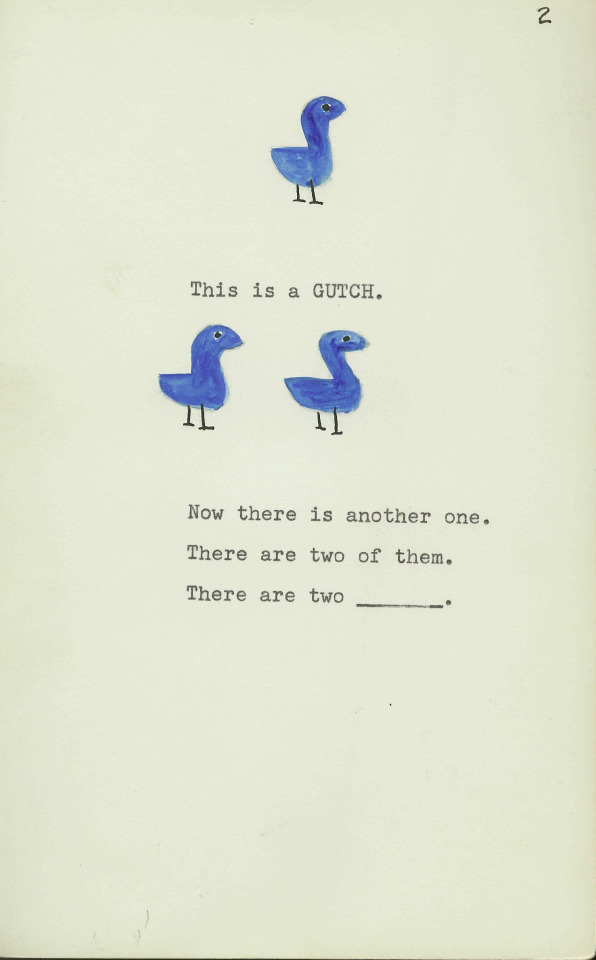
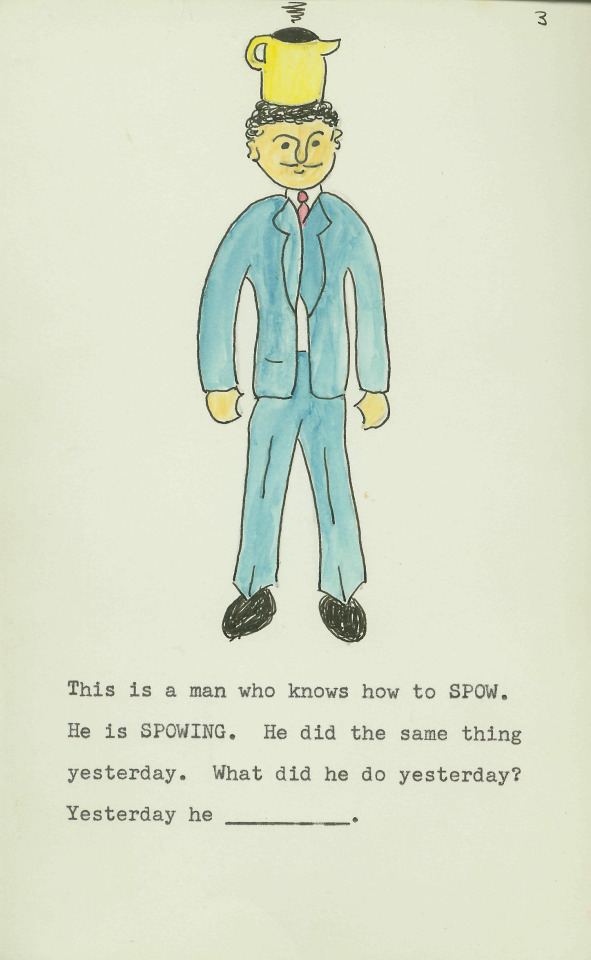
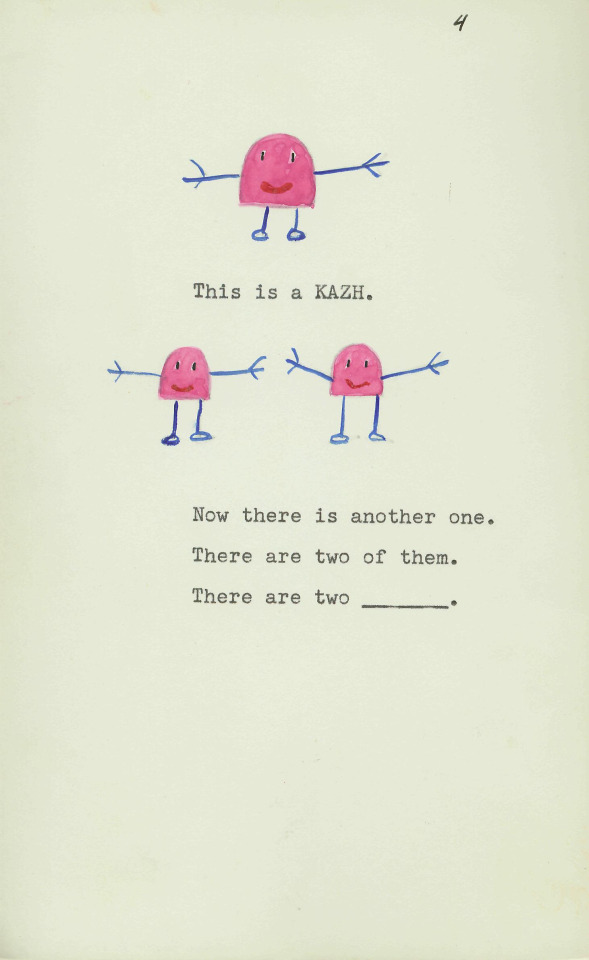
Sources:
Wikipedia, All Things Linguistic
19K notes
·
View notes
Text
in an interesting case of linguistic convergent evolution, the english words scale, scale, and scale are all false cognates of each other
109K notes
·
View notes
Text
One of the hard things about expressing oneself in English is that there aren't suffixes you can put to make nouns smaller and bigger in the same way as in Portuguese.
For example, you have doido (crazy), doidinho (literally "little crazy"), and doidão (literally, "big crazy") and they all carry very different connotations.
Saying someone is "a little crazy" isn't the same as "doidinho" (which carries a tone of affection) and saying someone is "doidão" (which may or may not have implied affection depending on context) isn't quite the same as saying someone is "very crazy."
Adding the suffix is just so much easier.
78 notes
·
View notes
Text
Us, arriving to Austria to a tiny family hotel owned by an elderly lady
Us: speak only limited German
Lady: barely speaks English
Us:
Lady:
Lady: Czech? Slovak?
Us: Czech
Lady, to herself: Czech, that's a Slavic language right
Lady: understand Yugoslavian?
Us:
Us: yeah that works
49K notes
·
View notes
Text


I was wondering if “drat” had any particular meaning and apparently it’s a clipping of “god rot”, which sounds to me like a pretty intense thing to say to a person. I’d have to be pretty mad at somebody to say “God rot you”
369 notes
·
View notes
Text
if someone told me their pronouns were attack/helicopter I would just use them
88K notes
·
View notes
Text
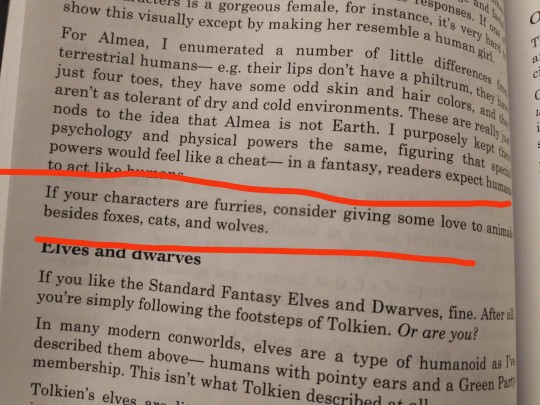
One thing I didn’t expect from my new worldbuilding book is the author, roughly my dad’s age, including his opinions on furries
127K notes
·
View notes
Text
Spanish is a wonderful language for how it lets you add "-ito" to the end of a word to immediately make it small and cute.
Saw a children's book at work called "Vlad, el vampirito fabuloso" and I spent the rest of the workday going "Vampirito. Vampirito. Vampirito" in my head like a broken record
14K notes
·
View notes
Text
"Ma'am, your penis is barking"

3K notes
·
View notes
Text
Part of my goal for the script is something that generates distinctly esoteric-looking glyphs. It's why I based it on astrological/alchemical symbols.
2K notes
·
View notes
Text
When I studied abroad, I thought my host family just had difficulty pronouncing my name. They didn’t try very hard before deciding that they’d just call me Brahim and be done with it.
This kept happening no matter where I went in Morocco. Even fluent English speakers decided to give me alternative names, and I just shrugged it off as the consequence of one of the syllables being very unusual in Arabic.
That is, until one day I was talking to a shopkeeper in the souk and he asked me my name. I gave him my English one, and explained that I also answer to Brahim (and Daud, and… more than I can remember). He laughed hysterically and looked shocked, calling his friend over from the back of the shop.
“Tell him your name,” he said excitedly. I did so.
The other man’s face cycled through several expressions very quickly—surprise, anger, suspicion, and then exasperation when he realized his friend had set me up.
They very kindly explained to me that my name spoken with a Moroccan accent sounds very much like an Arabic profanity, and that I should definitely introduce myself as Brahim or give an alternative English name when meeting new people, because shaking hands with strangers and saying “Hello, I’m Fuck Your Mother’s Religion” is not a greeting that will win me many friends.
So. Brahim it was.
60K notes
·
View notes
Text
A loanword is a word taken from another language, such as ‘angst’ or ‘tsunami’ or ‘calque’. A calque is a literal translation of a word from another language, such as rhinestone (from French caillou du Rhine) or blueblood (from Spanish sangre azul) or loanword (from German lehnwort).
23K notes
·
View notes
Text
Many books of the Bible that didn't make it to the official canon(s) and other incredibly important pieces of scripture and literature are only known today because they were preserved in the Ge'ez script in Ethiopia. It is very likely that there are lots of other texts dating to the earliest days of Christianity that are still to be "found", only because there aren't enough international scholars who know the Ge'ez script or work in Ethiopia. There are many, but not as much as it deserves. (Important note is that Ge'ez is both a liturgical language, like Latin, and also is a script, much like Latin or Chinese characters, used by many Ethiopian languages, but others can be written and indeed are written in Ge'ez script, this is why it has preserved such a range of literature)
Ge'ez looks like this:
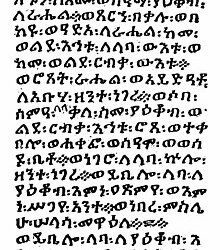
ሀሎ! ይህ በአማርኛ ቋንቋ እና በግእዝ ፊደል የተጻፈ ነው! ለእርስዎ እና ለቤተሰብዎ በረከቶች!
There was briefly a very bad taste meme calling it a "demon language", with people even copypasting random religious literature in Ge'ez thus making it seem more "sinister". I won't comment on how ignorant and offensive that is.
Ge'ez is an important script and language, much like Greek or Latin, because of its connection to major religions like Christianity, Judaism and Islam. Ethiopia is a wonderful country with a deep, rich history, and is an example of how Africa has always been part of world history. But like all languages, it's also a cultural heritage on its own, worth cherising, preserving, and learning about, regardless of its importance to the rest of the world. Instead of being ignorant for a racist joke, we could always take our time and learn and appreciate such things.
8K notes
·
View notes
Text
I always feel like I am made of so many pieces that don't fit together, but the beautiful thing about making my own conlang is that it is mine, and I can use it to write the most cursed smut or translate religious verse.
1 note
·
View note



